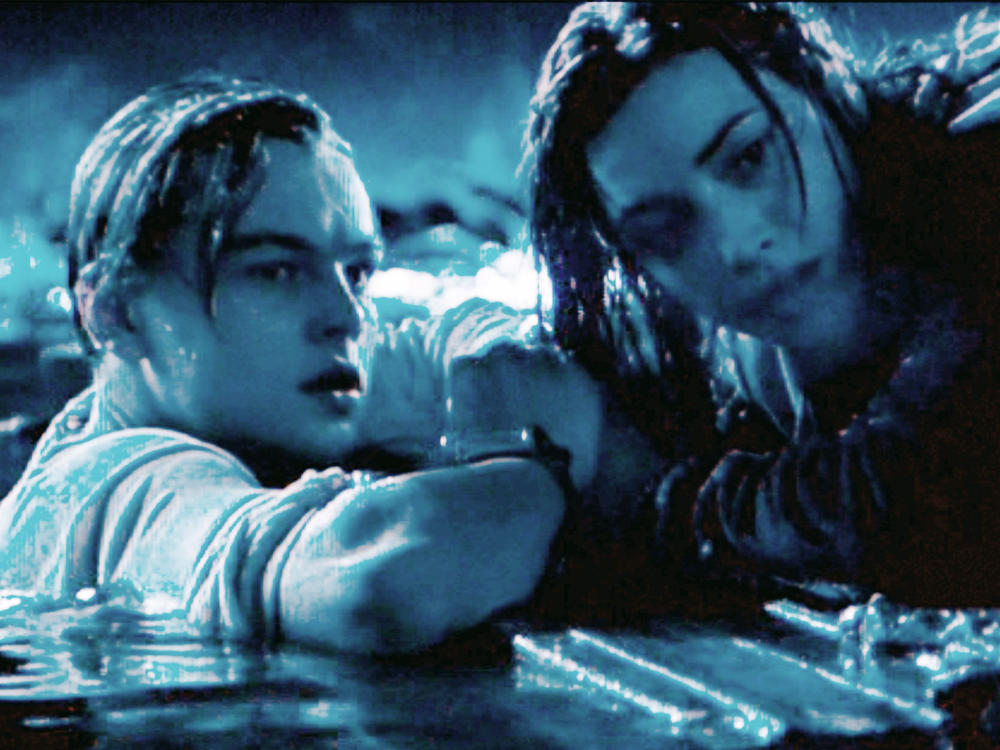Section Branding
Header Content
James Cameron aims to finally put that 'Titanic' door debate to rest, 25 years later
Primary Content
Titanic director James Cameron wants to put an end to a debate that has gone on since the movie first hit theaters, exactly 25 years ago today.
Could Rose have scooched over to make room for Jack on that floating hunk of wood, keeping him out of the freezing water and saving his life?
Yes, many fans have argued with zeal — including the makers of MythBusters, who concluded after a 2012 experiment that both Jack and Rose could have plausibly fit on the door.
Cameron disagreed, saying in that episode that "the script says Jack dies, he has to die." He has long dismissed that the question is even up for debate, arguing in multiple interviews over the years that Jack's death was essential to the plot and that there was only room for one person on the makeshift raft.
The famously thorough director is hoping to close the door on that dispute for good, this time with an even more scientific approach.
While promoting his new movie Avatar: Way of Water, he told The Toronto Sun that he had commissioned a scientific study "to put this whole thing to rest and drive a stake through its heart once and for all."
"We have since done a thorough forensic analysis with a hypothermia expert who reproduced the raft from the movie and we're going to do a little special on it that comes out in February," he explained. "We took two stunt people who were the same body mass of Kate [Winslet] and Leo [DiCaprio] and we put sensors all over them and inside them and we put them in ice water, and we tested to see whether they could have survived through a variety of methods, and the answer was, there was no way they both could have survived. Only one could survive."
Viewers will be able to see for themselves when the special runs on National Geographic, The Sun reports. That same month, a remastered version of Titanic will hit theaters just in time for Valentine's Day (so plan your date night or crying party accordingly).
Cameron maintains that Jack simply had to die, telling The Sun that "if I had to make the raft smaller, it would have been smaller."
"It's like Romeo and Juliet," he added. "It's a movie about love and sacrifice and mortality. The love is measured by the sacrifice."
What do Jack and Rose have to say about all of this?
When asked during a 2019 MTV interview whether he thought Jack could have fit on the door, DiCaprio said repeatedly that he had "no comment."
Winslet has been more forthcoming, telling various late-night hosts in recent years that she thinks there could have been room for two.
But the question isn't whether two could fit, it's whether two could float, as she told "Happy Sad Confused" podcast host Josh Horowitz last week.
Winslet knows a bit about water, saying she spends a lot of time paddle boarding, surfing (board, kite and wind), scuba diving and cold water swimming. And if you put two adults on a stand-up paddleboard, she says, it becomes "immediately extremely unstable."
"I have to be honest, right," she said. "I actually don't believe that we would have survived if we had both gotten on that door. I think he could have fit but it would have tipped and it would not have been a sustainable idea."
The solution may not have been sustainable, but the movie — which was the first to gross $1 billion dollars — sure has staying power.
NPR pop culture critic Linda Holmes said in 2017 that two decades on, what makes the movie as timely as ever is that "it's a slow-moving disaster of immodesty."
"The people who built the ship cannot see, will not see its flaws. By the time they figure it out, it's too late," she told NPR's All Things Considered. "There's no miracle. There aren't enough lifeboats. Twenty years later, all we can do is wonder: Rose, couldn't you have fit two people on a floating door?"
And now we know. Or at least that's what Cameron hopes.
"Maybe ... maybe ... after 25 years, I won't have to deal with this anymore," he said with a laugh.
Copyright 2022 NPR. To see more, visit https://www.npr.org.

